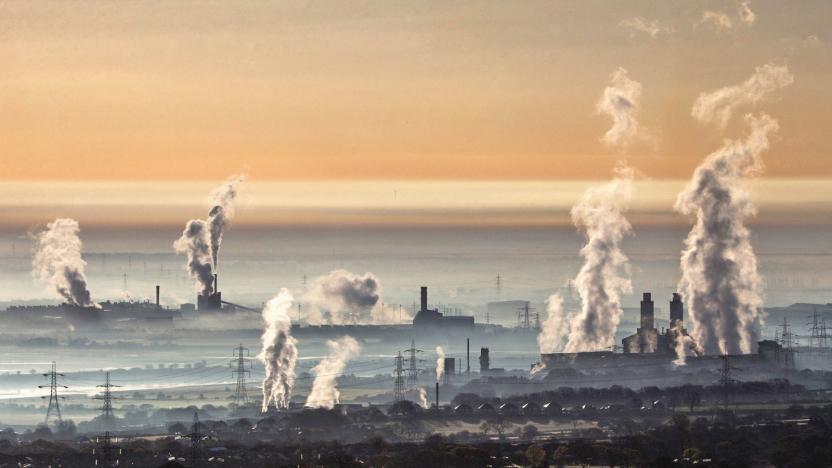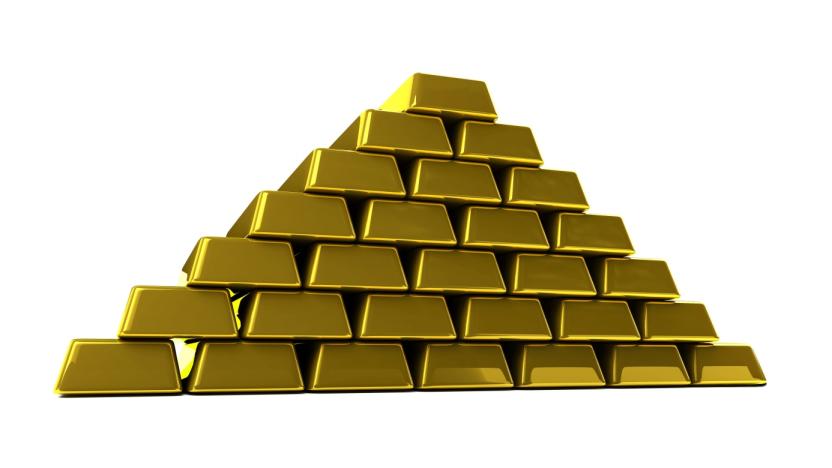metals
Latest

Researchers suggest 100 percent renewable energy isn’t very green
In order to keep global temperature rise below 1.5 degrees Celsius, we'll need to rely on renewable energy, electric vehicles (EV) and battery storage. But creating that infrastructure will dramatically increase our need for metals like cobalt and lithium. A report released this week cautions that a spike in demand for those and other metals could drain the planet's reserves and lead to dire social and environmental consequences.

UK's abandoned tin mines could be reopened to help build EVs
The last of Britain's tin mines were closed in the late 90s due to plummeting metal prices and languishing global demand. Now, with the advent of smartphones and electric vehicles, demand -- and prices -- are on the up, and these forgotten facilities could be reopened to help the UK gain a stronger foothold in the market.

Genetically modified yeast mops up heavy metal pollution
Environmental scientists dream of eliminating pollution with natural resources, but that's tricky when it comes to heavy metals. Plants won't work for cleaning polluted water, and only some of them grow large enough to absorb those toxic materials. Researchers may have a relatively simple answer to the problem, though: genetically engineered baker's yeast. Their modified organism uses a cell membrane 'anchor,' and peptides that bind with metals like cadmium, copper and nickel to absorb their ions. The result? The best yeast strains can mop up 80 percent of metal ions without nasty effects -- you'd just have to scoop up the yeast after a cleanup operation.

Apple's recycling efforts are saving it a fortune
Apple's agenda to be more kind to the planet isn't just about getting Friends of the Earth off its back, it's also about saving bucketloads of cash. The company published its environmental responsibility report for last year that reveals that recovering precious metals from old iPhones is worth plenty of money. The firm pulled 61,357,800 pounds of raw materials out of discarded devices, including 2,204 pounds worth of gold. Cult of Mac consulted the day's metal prices and found that the gold alone was worth $40 million. In addition, the company pulled out 3 million pounds of copper (worth $6.4 million) and 4.5 million pounds of aluminum ($3.2 million).

Nokia establishes stance on conflict minerals in formal policy
Recent weeks have seen a swell of interest in corporate responsibility, particularly with regard to technology manufacturing and supply chains. Last month, Apple CEO Tim Cook affirmed his company's commitment to ethically and environmentally sound practices, evoking sentiments that were echoed today in a similar announcement from Nokia. Seizing the opportunity to establish some goodwill among socially conscious consumers, the Finnish manufacturer has just released a policy outlining its philosophy on conflict minerals -- metals like gold, tungsten and tin that have played a direct role in fueling civil violence and unrest in the Democratic Republic of Congo. In the document (linked below), Nokia acknowledged that it doesn't play a direct role in obtaining these materials, but emphasized its strict traceability requirements. All suppliers, Nokia says, must provide detailed information on the sourcing of its metals, going back to the smelter phase, at a minimum, and even to the mine itself, if necessary. The company also highlighted its adherence to guidelines established by the EICC-GeSI Extractives Work Group, which both Apple and Intel have already joined. Granted, it's impossible for a single company to wipe out civil strife and human rights abuses in one fell swoop, but with this codified approach, Nokia hopes to at least "increase transparency, ensure responsible procurement by our suppliers and sub-suppliers, and drive positive change."

Researchers find flaws in neodymium magnet crystalline structure, still in love with its personality
Given China's status as the worlds largest producer of rare earths and its recent proclivity for reducing exports of the stuff, everyone else is looking for ways to reduce dependency on rare earths or optimize the use of these sought-after elements. Well, neodymium is one of those rare earths, and a team from St. Pölten University in Austria recently discovered "disturbances in the crystalline structure in neodymium magnets" that weaken their magnetic fields -- and consequently the efficacy of all those electric motors and hard drives that utilize such magnets. For now, research is ongoing to fully understand the properties of neodymium and other rare earths so that their use can be "optimized." We aren't exactly sure how we'll benefit from all this optimization, but we hope it means cheaper and more powerful gadgets, TVs, and cars for all of us. [Image source: Thomas Schrefl]

China nationalizes eleven rare earth mines for environmental and strategic reasons
Most of our favorite gadgets are constructed with parts made of rare earth minerals, and as many of you already know, China produces the lion's share of the stuff. So news that Hu Jintao and company recently took control of 11 rare earth mines in order to more tightly manage the mines' production is of great interest to hi-tech companies and consumers the world over -- and could mean your next hybrid, smartphone, or PC just got a bit more expensive. The Chinese Ministry of Land and Resources indicates that nationalization of the facilities was prompted by illegal strip mining and dumping of toxic tailings in nearby waterways, but given China's pledge to reduce rare earth exports by ten percent this year, it seems likely that the move isn't entirely driven by environmental concerns. Consumers needn't worry too much, however, as Japan and the US are currently searching for ways to break China's monopoly on rare earths and keep us flush in affordable flat-screen TVs and hybrid cars for years to come.

US mineral companies to tech industry: drill, baby, drill
Even if your favorite gadget isn't flaunting them, rare earth metals are vital to all sorts of high-tech gizmos, from your flat-panel TV and computer hard drive to the hefty batteries that power the Toyota Prius. But over 95% of the world's rare earth comes from China; and late last year, China told the world that they'd like to keep the lion's share all to themselves. What will we Westerners do? Well, we could let China continue producing mountains of e-waste on our behalf. But we could also find plenty of rare earth just by digging in our own backyard. According to the U.S. Geological Survey, the United States has over 13 million metric tons of rare earth with concentrated deposits in Mountain Pass, California and Diamond Creek, Idaho. But since the private firms that control those deposits aren't willing to spend the requisite eight years and minimum $500 million to construct a chemical separation plant, Idaho-based U.S. Rare Earths is just sitting on their ore for now, while California's Molycorp Minerals is forced to send their material all the way to China (once again) for processing. "No one wants to be first to jump into the market because of the cost of building a separation plant," former USGS rare earth specialist Jim Hedrick told LiveScience. Should China's export dwindle and the U.S. feel the pinch, that may change, but for now it's good to know that when the global game of StarCraft tells us "not enough minerals," we'll know exactly where to look.

Making/Money: The Origin of the Specie
Specie (n) - any type of coined money, usually of metal. Also used to describe commodity metals. The crafting systems of MMOs have taken their queues from many different sources to find minerals for mining professions. The usual, generally lower-level, metals such as copper, tin, or iron, are seemingly universal. But as you level you may run across some rather odd materials that are difficult or impossible to find in real life. Today we will be looking at where the metals seen in games came from. Common or rare. Real or created for the sole purpose of sounding like it could be, these are the metals of our games.

Engineuity developing hydrogen-creating, emission free vehicle
Just in case there weren't enough alternate fuel developments going on around the world, it looks like we've got yet another vying for business over in Israel. Engineuity, a company started by Amnon Yogev, has reportedly developed a method for vehicles to "produce their own fuel" using metals such as magnesium and aluminum to create hydrogen and steam. Similar to a solar-powered "zinc-to-hydrogen" approach that gained attention in 2005, this method utilizes a "long metal coil" which would be inserted into a metal-steam combustor that stands to "separate hydrogen out of heated water." After intense heating, the metal atoms would purportedly bond to the oxygen from the water, creating metal oxide; the result would free up hydrogen molecules to be sent to the engine alongside the steam to provide the juice. The firm also insinuates that "refueling" the vehicle would be "remarkably simply," and construction could be completed on current production lines without requiring entirely new infrastructures. According to Yogev, the "running cost of the system should be equal to that of conventional cars today," and hopes to have a full scale prototype ready to rumble in "around three years."[Thanks, Mike]






